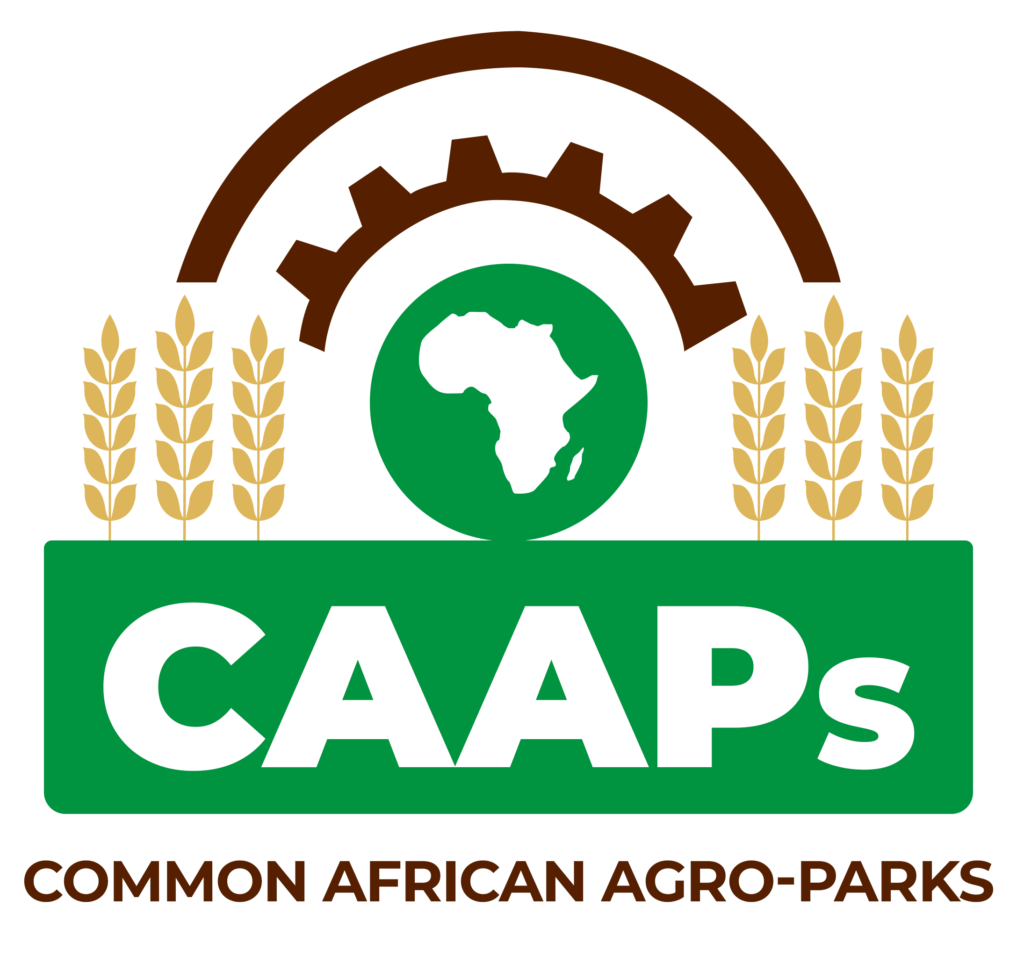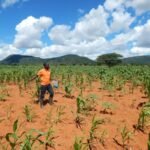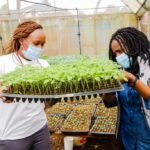By Panagrimedia Correspondent, October 18, 2023, Regional Economic Communities in Africa are set to meet this week to drive forward a proposal for mega agro-industrial hubs across the continent that would boost agricultural development. The Common African Agro-Parks (CAAPs) are aimed at boosting regional trade for agricultural commodities, increasing local processing of key agricultural products and reducing food import. This significant event will occur from October 18 to 21, 2023, at the COMESA headquarters in Lusaka, Zambia with support from the Food and Agriculture Organization of the United Nations (FAO) through its Technical Cooperation Programme (TCP).
Partners participating in the meeting include the Africa Union Commission, the African Union Development Agency, the Common Market for Eastern and Southern Africa, the Food and Agriculture Organization, United Nations Industrial Development Organization, United Nations Economic Commission for Africa, the Pan-African Agribusiness Chamber, the Pan-African Farmers Organisation, the Africa Business Council, IFPRI, African Continental Free-Trade Area, Afreximbank, African Development Bank and the CAAPs Secretariat hosted by the Forum for Agricultural Research in Africa. The rest are country representatives from Zambia and Zimbabwe, key private sector players such as Bühler Group, Grüner, BRICS as well as the world Food Programme.
The Third Ordinary Session of the Specialized Technical Committee (STC) on Agriculture, Rural Development, Water and Environment, held on 21-25 October 2019 in Addis Ababa, widely discussed the benefits of agro-industrialization to the continent and resolved to adopt the Common African Agro-Parks (CAAPs) as a programme contributing to the implementation of the African Continental Free Trade Area (AfCFTA). The CAAPs Programme was finally ratified as a flagship initiative of the AU Agenda 2063 during its 36th Summit in February 2023.
The CAAPs initiative aims to create transboundary mega agro-industrial hubs across Africa. This ambitious endeavour falls within the Comprehensive African Agricultural Programme (CAADP) framework and the AU Agenda 2063. Its overarching objective is to drive the industrialization strategy of African governments and RECs, transforming economies from traditional raw material exporters to agro-industrial powerhouses.
Despite Africa’s abundant fertile land and a burgeoning young workforce, the continent spends approximately USD 50 billion ($50b) annually importing food commodities.
The CAAPs program seeks to reverse this trend by promoting cross-border agriculture value chains, attracting private sector investments in agro-industrialization, and establishing sustainable cross-border policies within the context of the African Continental Free-Trade Area (AfCFTA).
Over four days of intensive interaction, the Directors of RECs and CAAPs Technical Working Groups (CAAPs-TWG) Experts will strengthen collaboration, build synergies and draw actions to accelerate the implementation of this initiative.
Firstly, they will raise awareness among RECs about CAAPs, facilitating subsequent sensitization of AU Member States and fostering a knowledge exchange regarding regional agro-industry development within the AfCFTA framework.
Also, they will solicit feedback from RECs regarding the CAAPs process, necessary infrastructure, governance, and legal models, and the AfCFTA instruments vital for creating a conducive business environment for transboundary Public-Private Partnerships (PPPs) in CAAPs.
Again, they will deliberate on the mapping exercise for future agro-industrial development in Africa, with a practical case study of the ZimZam CAAPs location. RECs are expected here to propose locations for the 10 CAAPs Demonstration Projects ( 2 per region) and for the 5 larger CAAPs (one per region) envisioned by the African Union.
Finally, they will forge a harmonized process for RECs’ engagement with countries and stakeholders within their respective regions, including the private sector and regional banks, to prepare for CAAP implementation.
At the end of the four days meeting, participants would have (i) compiled feedback from RECs on the CAAPs process, infrastructure models, and the required legal instruments for joint governance and PPPs in transboundary settings within the AfCFTA context; (ii) agreed on a harmonized process for engagements with countries; (iii) compiled and validated feedback of criteria for mapping future transboundary agro-industrial development zones in Africa; (iv) developed a joint roadmap for rolling out CAAPs in AU Member States; and (v) developed action plans for joint resource mobilization and partnership engagement among RECs to develop CAAPs.
This Inaugural Coordination Meeting marks a pivotal moment in Africa’s agricultural and industrial transformation pursuit. By fostering collaboration and knowledge sharing among regional economic communities, this event lays the foundation for a sustainable, prosperous, and food-secure future for the continent.








